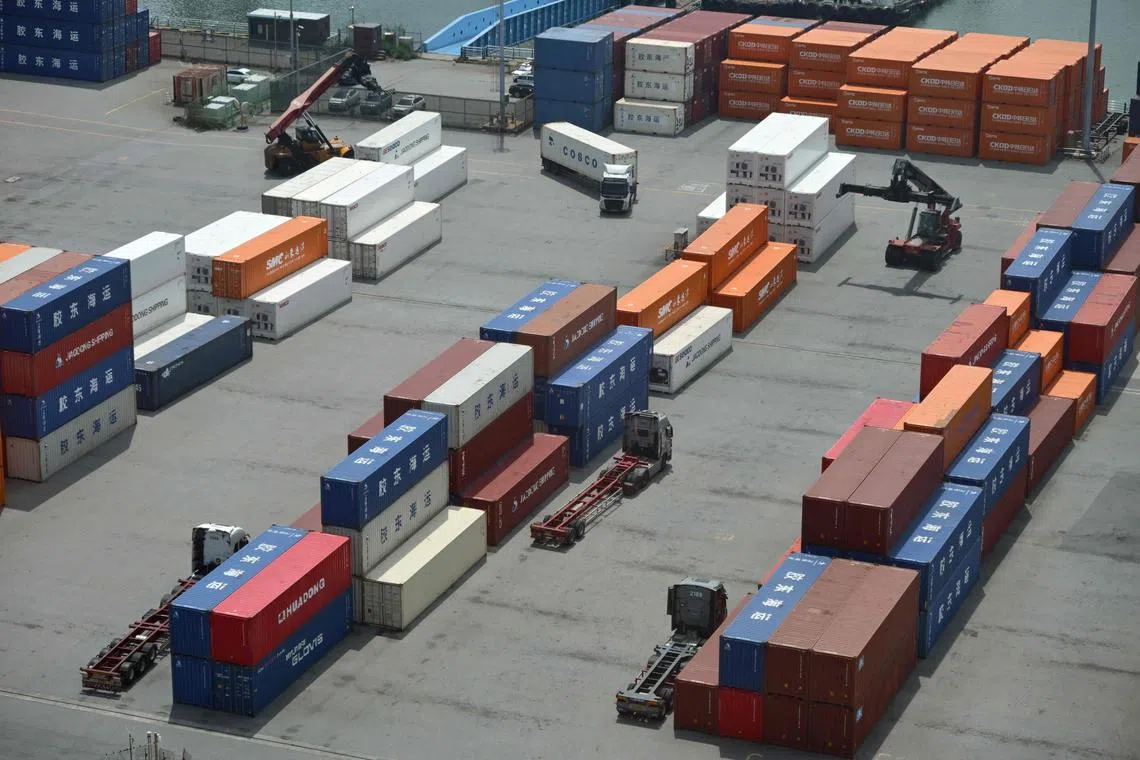South Korea’s early exports data shows resilience despite US tariffs toll
Sign up now: Get ST's newsletters delivered to your inbox

A trade deal capped US tariffs on South Korean goods at 15 per cent – below the 25 per cent level that US President Donald Trump had threatened to impose.
PHOTO: AFP
Follow topic:
SEOUL – South Korea’s early exports data showed that shipments overseas have held up so far in August despite sweeping US tariffs that continue to weigh on global commerce.
The value of shipments increased 7.6 per cent from a year earlier in the first 20 days of August, according to data released on Aug 21 by the customs office.
That compared with a 5.8 per cent increase in the full month of July.
Imports edged up 0.4 per cent, resulting in a trade surplus of US$833 million (S$1.07 billion).
Working-day adjusted exports also climbed 7.6 per cent for the first 20 days of the month.
The latest data comes after a last-minute trade deal that capped US tariffs on imports of South Korean goods at 15 per cent
Outbound shipments so far have likely been supported by front-loading ahead of the Aug 1 tariff deal deadline.
Also, manufacturers including Samsung Electronics have benefited from Mr Trump’s decision to put smartphones, laptops and other consumer technology products on an exclusion list.
Supply chain relationships with companies such as Apple have also helped.
While the pact eased fears over the potential worst-case scenario, policymakers warn that growing global protectionism and lingering tensions with Washington could weigh on the outlook.
Vehicle exports face uncertainty, as the 25 per cent US tariff on Korean cars remains in place until Mr Trump signs an executive order to align it with the 15 per cent universal rate.
Written documentation on the trade deals agreed to with Japan and South Korea is “weeks away”, US Commerce Secretary Howard Lutnick said on Aug 19 in an interview with CNBC. Mr Trump has also threatened to add chip tariffs by the end of August.
By sector, semiconductor exports, South Korea’s top product, rose almost 30 per cent, while auto exports climbed 22 per cent.
Steel exports dropped 4.5 per cent, staying weak under the pressure of the 50 per cent US tariff, and petroleum product shipments fell 4 per cent.
Unadjusted exports to the US fell 2.7 per cent, whereas shipments to China increased 2.7 per cent.
Exports to Thailand increased 59 per cent, and those to Singapore rose 82 per cent.
Exports are equivalent to more than 40 per cent of South Korea’s economy, making them a key barometer of growth.
While the tariff deal and signs of stronger consumption offer some support, the central bank is likely to stay cautious on the growth outlook, as tariffs may still pose risks to exports down the road, Nomura Holdings economist Park Jeong-woo wrote in a note this week. BLOOMBERG

